I’ve read over a hundred books this year. Yes, I’m afraid I’m the kind of nerd who actually keeps an annual record of these things. I’ve also, during the lockdown, discovered the joy of the audio-book, books downloaded from my local library direct to my phone. I love being able to immerse myself in a book while I’m cooking, cleaning the house or working in the garden.
Most of the books I chose to read in 2020 were good, several were excellent and just a few were not so good. From those that were published this year, this extraordinary year, I have selected eight as my books of the year. These are the books I’ve particularly enjoyed and, for the purposes of this blog, are ones which I can just about squeeze into the ‘landscape’ category.
But what is landscape, particularly in this strangest of all years? For much of 2020 most of us have been restricted to exploring places close to home. But, turning this necessity into a virtue, I find it has provided the opportunity to delve deep into the landscape, rather than to wander it widely. Even in urban settings, traces of ancient forests are embedded in the ground beneath our feet; the past sits layered upon our landscapes.
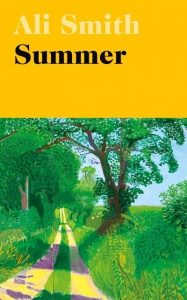 Ali Smith released the first of her quartet of ‘seasonal’ books in 2016 and concluded it this year with the publication of Summer. I never got round to reading any of them before this year. But that has allowed me to have the exhilarating experience of reading all four in a short space of time during the lockdown. Each is a stand-alone novel and it’s not essential that one reads them as a sequence. But while there are stylistic differences between each, all four share a collection of common themes: death, truth, art, consciousness, disappointment, failure, waste and nature. Summer revisits some of the characters Smith has already introduced us to, but it is is not so much a conclusion, as the completion of one cycle and the suggestion of the beginning of another.
Ali Smith released the first of her quartet of ‘seasonal’ books in 2016 and concluded it this year with the publication of Summer. I never got round to reading any of them before this year. But that has allowed me to have the exhilarating experience of reading all four in a short space of time during the lockdown. Each is a stand-alone novel and it’s not essential that one reads them as a sequence. But while there are stylistic differences between each, all four share a collection of common themes: death, truth, art, consciousness, disappointment, failure, waste and nature. Summer revisits some of the characters Smith has already introduced us to, but it is is not so much a conclusion, as the completion of one cycle and the suggestion of the beginning of another.
In some ways Unofficial Britain is Gareth E Rees’s most unrelentingly strange book. Its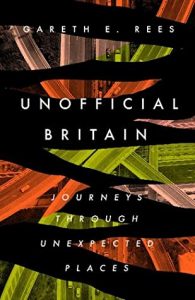 language has none of the hallucinogenic flights of fancy of earlier works, such as Marshland. This latest book’s prose is, in fact, resolutely straightforward and is interwoven with much of Rees’s backstory, including his early life. His subject matter, however, is anything but straightforward and he succeeds in summoning up a Gothic vision of modern Britain. A modern landscape that barely overlays a series of pasts:
language has none of the hallucinogenic flights of fancy of earlier works, such as Marshland. This latest book’s prose is, in fact, resolutely straightforward and is interwoven with much of Rees’s backstory, including his early life. His subject matter, however, is anything but straightforward and he succeeds in summoning up a Gothic vision of modern Britain. A modern landscape that barely overlays a series of pasts:
What I learned on this journey is that everything changes and yet little does. Landscapes overlay landscapes, in ever-turning cycles.
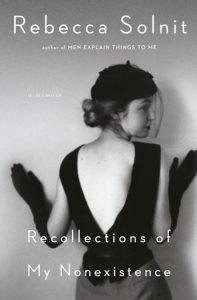 Rebecca Solnit is a writer, an activist and a campaigner. With Wanderlust: A History of Walking (2000) she established her credentials as a landscape writer, but a landscape writer who ignored the obvious and instead explored the margins, the gaps and the abandoned. Her theme of giving voice to the silent, to the despised, continued in her later works, such as Men Explain Things to Me (2014). Recollections of My Non-Existence takes as its starting point Solnit’s arrival in San Francisco in 1981 and covers her development as a writer and activist. Non-Existence, she explains, was often an option she chose when she was a young female writer without power, money or influence. It was a way of avoiding being subjected to outright aggression and hostility ‘since existence was so perilous’.
Rebecca Solnit is a writer, an activist and a campaigner. With Wanderlust: A History of Walking (2000) she established her credentials as a landscape writer, but a landscape writer who ignored the obvious and instead explored the margins, the gaps and the abandoned. Her theme of giving voice to the silent, to the despised, continued in her later works, such as Men Explain Things to Me (2014). Recollections of My Non-Existence takes as its starting point Solnit’s arrival in San Francisco in 1981 and covers her development as a writer and activist. Non-Existence, she explains, was often an option she chose when she was a young female writer without power, money or influence. It was a way of avoiding being subjected to outright aggression and hostility ‘since existence was so perilous’.
Melissa Harrison gave up a comfortable urban career to move 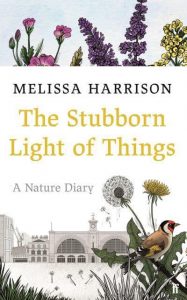 from London to rural Suffolk to try to make her living as a full-time writer. The Stubborn Light of Things is based on the excellent podcast series of the same name and Harrison’s Nature Notebook column in The Times. She takes us through her growing awareness of the natural world all around her, initially in the city and then in her new home in the Suffolk countryside. Harrison writes with passion about the plants, wildlife, topography and weather she sees all about her and urges the reader to open their eyes and see it too.
from London to rural Suffolk to try to make her living as a full-time writer. The Stubborn Light of Things is based on the excellent podcast series of the same name and Harrison’s Nature Notebook column in The Times. She takes us through her growing awareness of the natural world all around her, initially in the city and then in her new home in the Suffolk countryside. Harrison writes with passion about the plants, wildlife, topography and weather she sees all about her and urges the reader to open their eyes and see it too.
But Harrison’s nature writing is not just about cosily urging us to ‘look at this’. With gentle insistence, she rails against humankind’s selfish destruction of other species: ‘In making the countryside work so hard for humans, its ability to support other creatures began to be lost.’
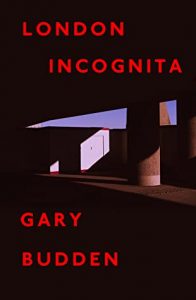 This is a book about London. Not the city the tourists see, but the dark underside of London. Gary Budden takes us through underpasses haunted by murdered women who do not yet know they are dead, tube station walkways with no way out and sewers haunted by fatbergs, rat kings and worse.
This is a book about London. Not the city the tourists see, but the dark underside of London. Gary Budden takes us through underpasses haunted by murdered women who do not yet know they are dead, tube station walkways with no way out and sewers haunted by fatbergs, rat kings and worse.
There is London Cognita, and London Incognita, and I know where I belong. It won’t be long now.
London Incognita is hard to define: weird fiction, punk landscapism and alternative history all feature, but there is much more besides. In a series of linked short stories covering several decades Budden creates a guide book to city that is grimily familiar in its reality, but at the same time disturbingly strange in its imagining.
Francesca Wade’s Square Haunting takes as its setting Mecklenburgh Square in Bloomsbury. The area around the British Museum, later regarded as London’s bohemian enclave, was just another area of cheap rented accommodation at the beginning of the twentieth century. Wade examines the lives of five radical feminist writers who made their home in the square: Dorothy L Sayers, Hilda Doolittle (HD), Jane Ellen Harrison, Eileen Power and Virginia Woolf.
The five were not a community of writers, they lived in the square at only marginally overlapping times and rarely did any of them mix with one another. However, Wade shows how Mecklenburgh Square played a significant part in the life of all of the women. It gave each, in her own way, a ‘room of one’s own’ *** in which to think, talk and write and a central London location for ‘street sauntering and square haunting’. ***
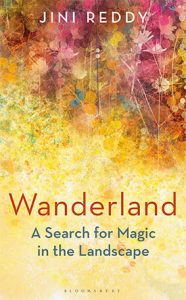 Jini Reddy’s Wanderland records the experiences and encounters of a woman of colour exploring the countryside on her own. Many of the people she meets are open and welcoming, while others look at her ‘a second longer than they need to’.
Jini Reddy’s Wanderland records the experiences and encounters of a woman of colour exploring the countryside on her own. Many of the people she meets are open and welcoming, while others look at her ‘a second longer than they need to’.
Describing her wanderings in Canada, the UK and elsewhere, Reddy shows an acute eye for nature and landscape. But this is not just nature writing, she delves deeply into the spiritual nature of the landscapes she wanders through. But it is Reddy’s descriptions of the people she meets and her meditations on her own background and inner life that demonstrate her abundant skills as a writer.
I first encountered Helen Macdonald’s work when I read H is for Hawk some six years ago. In that book she described in stark detail the year she spent training a bird of prey while at the same time dealing with her feelings over the death of her father.
In this series of essays, Macdonald lovingly describes the variety and strangeness of the natural world she observes around her. She reserves the true poetry of her writing for her descriptions of the sight and sounds of birds and insects in flight. But underlying all of these short pieces is a profound sadness at the human-made destruction of habitats and the accelerating extinction of species.
***Both quotes from Virginia Woolf
Summer – Ali Smith (Penguin, 2020)
Unofficial Britain: Journeys Through Unexpected Places – Gareth E Rees (Elliott & Thompson, 2020)
Recollections of My Non-Existence – Rebecca Solnit (Granta, 2020)
The Stubborn Light of Things: A Nature Diary – Melissa Harrison (Faber & Faber, 2020)
London Incognita – Gary Budden (Dead Ink, 2020)
Square Haunting: Five Women, Freedom and London Between the Wars – Francesca Wade (Faber & Faber, 2020)
Wanderland: A Search for Magic in the Landscape – Jini Reddy (Bloomsbury Wildlife, 2020)
Vesper Flights – Helen Macdonald (Jonathan Cape, 2020)

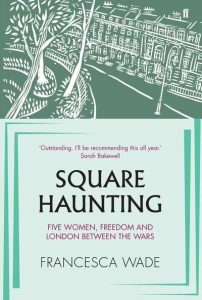
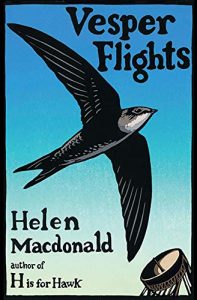
Good to see your views on the Ali Smith. I’ve enjoyed all the fiction of hers that I’ve read, so must get hold of this sequence of novels. Solnit’s book on walking is something I’ve dipped into – along with some of her other stuff on flâneuses (or am I confusing her with someone else?) Reviews of Square Haunting were enticing, as yours is. And the Helen Macdonald. Thanks for the recommendations. Impressive tally of books read. I’m nowhere near that this year.
To my shame, these were the first Ali Smith books I’ve read. I realise now what I’ve been missing, and I intend to read more!
Thanks a lot for this list. All of them look like books I want to read. I’m impressed by how much quality reading you’ve done. I’ve often been unable to get into anything longer than an article or essay this year – something I hadn’t expected, although I know I’m not alone in experiencing this. Hope to catch up on most of these books in 2021!
Thanks Carolyn. I seem to have developed a habit of insomnia this year. It may not be good for my general well being, but it does give me a lot of time to read!